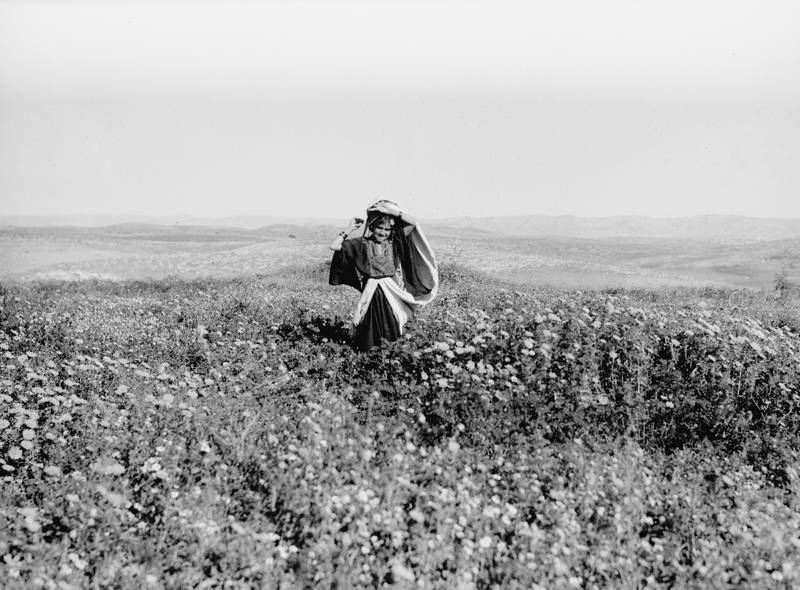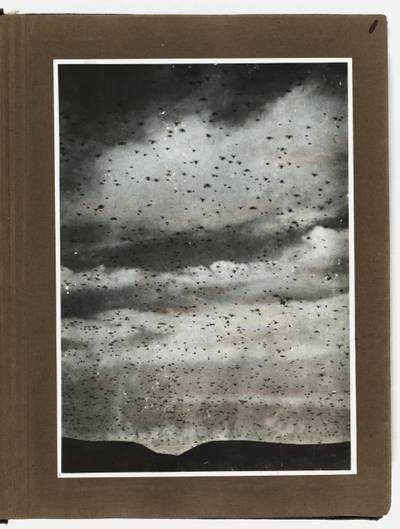Art Magazine
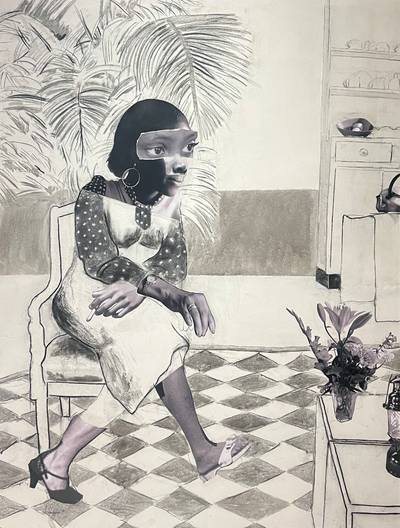

The struggle and violence that When We See Us attempts to circumvent is not self-inflicted. The exhibition as a format presents liberal humanism’s trajectory, highlighting how it is, at its foundation, a vehicle for a particular genre of being. To highlight joy through liberal humanist grammars contributes to this trajectory. In times of concurrent genocides, in an effort to interrupt liberal humanism, it would be more honest to acknowledge and take a critical position against it.
READBlack Joy™ in the White Cube: A Review of ‘When We See Us’
Bringing over a hundred years of Black portraiture into view, the exhibition’s tonal optimism about Black self-representation belies the complex histories of race, power, and visibility it mobilises. What does it mean to celebrate “Black joy” within the architecture of liberal humanism and under the shadow of corporate complicity?
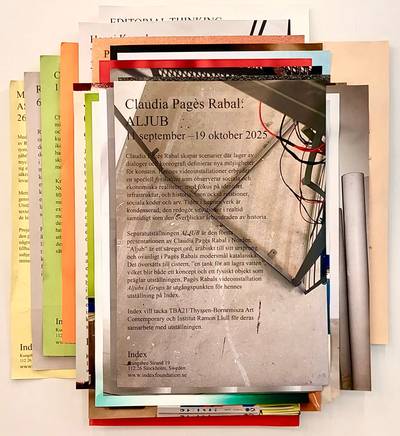

ALJUB is a thoughtful and enjoyable provocation, bringing together sensorial pleasure and a space for the expansion of critical thought. In doing so, it also projects onto broader conversations about the politics of language, its evolution and uses, and how colonial power shapes it in its own favour – how narratives are structured to legitimise specific histories while erasing others.
READ(Hi)story of Lies: A Review of Claudia Pagès Rabal’s ‘ALJUB’
ALJUB, presented at Index, probes how language, paper, and power flow through History much like water, quietly shaping, dividing, and legitimising. This review also considers how Index’s curatorial approach and institutional framework support politically engaged projects, reflecting on the role of critical thinking within independent art institutions and the critical outcomes that can emerge from sustained collaboration between artists and curators.
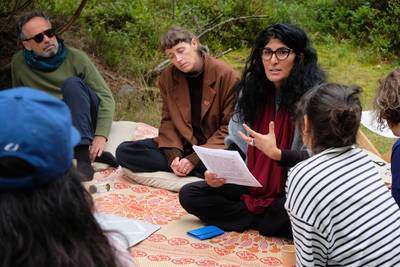

This interview grows out of that ongoing process of working, thinking, and speaking together. While it takes the form of questions and answers on the page, in reality, it unfolded as a dialogue: her narratives of Palestine, her frameworks of hospitality and self-determination, and her reflections on Sweden intertwined with my own questions, concerns, and the shared struggles I see myself as part of.
READCommoning Private Space: An Interview with Sandi Hilal
Palestinian architect, artist, and educator, Sandi Hilal, reflects on hospitality as a political practice, showing how private spaces – from living rooms to summer houses – can become sites of agency and collective self-determination.
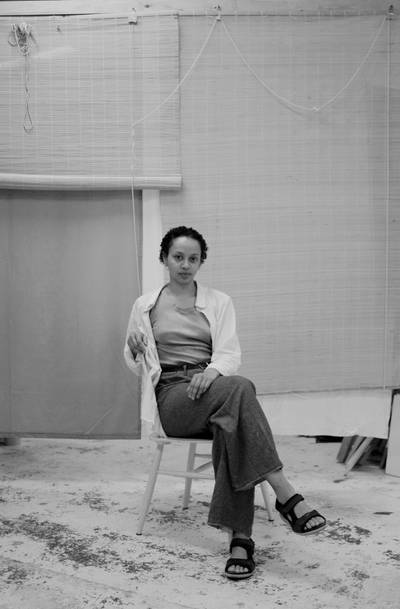

When a state is under attack and must defend itself, national identity becomes much clearer and more urgent. In contrast, in Finland, where we are not currently experiencing an immediate crisis, it is easier to question the role and necessity of national identity from such a privileged position. I’ve been reflecting on this in relation to places like Palestine and Ukraine, where national identity is deeply tied to survival and resistance.
READThe Shifting Grounds of National Identity: An Interview with Liisa-Irmelen Liwata
Liisa-Irmelen Liwata explores the intersections of body, land, and national identity through her art. In this conversation, she reflects on Finnishness, heritage, and the material transformations that shape her work, questioning both physical and conceptual borders along the way.
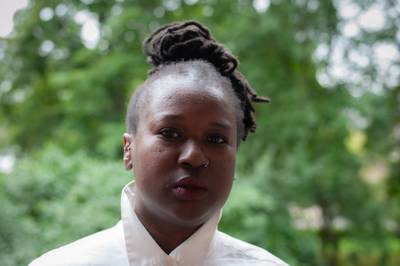

Simply using the material is an act of resilience – it asserts that bark cloth still holds significance for Ugandans today. In Uganda, I purchased a large quantity of it and visited the farmers who cultivate and care for the mutuba trees. This is generational work—many of these trees were planted by their fathers, their grandfathers, and even further back.
READMigration and the Politics of Belonging: An Interview with Sarah Nakiito
Ugandan-Swedish artist Sarah Nakiito discusses the evolution of her artistic practice, shaped by migration, the pandemic, and shifting notions of home. In this conversation, she reflects on her use of indigenous materials, the intersections of Swedish and Ugandan craft traditions, and the emotional weight of diasporic identity in her work.
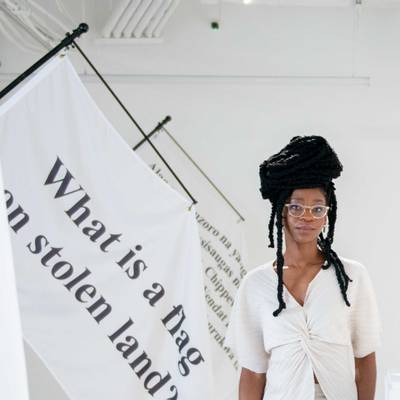

Colonial narratives, however, warped these histories, fetishizing these women, printing their images on postcards, and erasing the real story. I’m interested in uncovering these histories of ingenuity and resilience, how Black and Indigenous peoples made something out of nothing—and connecting them to the present. My work asks, what can we learn from these acts, and how might they shape the way we engage with each other today?
READRevealing a Quiet Slip in the Archive: An Interview with Kosisochukwu Nnebe
In a conversation with Golrokh Nafisi, Kosisochukwu Nnebe speaks of how she transforms food into living archives, tracing Indigenous and African knowledge through cassava and bananas, uncovering histories of resilience, resistance, and Black women’s ingenuity.
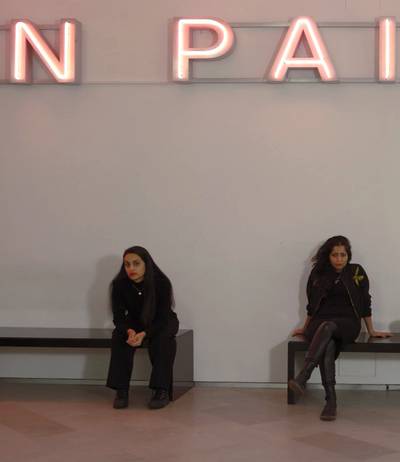

Oppression is not always visible in the Nordics. Many believe they have come far, but it becomes clear who truly faces the systematic stripping of identity. This is especially evident for non-white people. While others assume progress has been made, it is we who reveal that their successes are often an illusion.
READA True Artistic Sisterhood: A Conversation Between Saadia Hussain & Nayab Noor Ikram
What does it mean to create from in-between worlds? In this intimate conversation, Saadia Hussain and Nayab Noor Ikram reflect on artistic freedom, intergenerational sisterhood, and the search for belonging. Drawing on their Nordic roots and Pakistani heritage, they reveal how art becomes both personal and political.
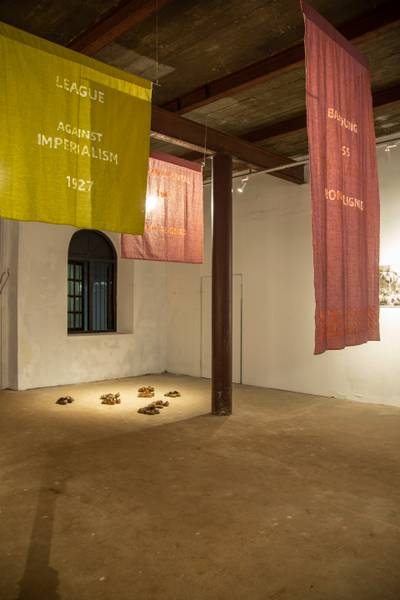

The practices of digging into the past to imagine more cosmopolitan or global futures often bypass a key question: Whose pasts are being invoked, and how is the contemporary actually being shared? In such reimaginations, the global south and its people are not just spatially homogenised but more strikingly, temporally displaced—imagined either as a reservoir, as tradition, or as some speculative, emancipated site of futurity that could save the world from the ills of capitalism.
READDo We Know How to Read Contemporary Art Beyond the Binaries of Colonial Modernity?
Contemporary art promises global inclusivity, yet hierarchies persist. Examining Kochi-Muziris Biennale and Konsthall C reveals how temporality, locality, and institutional practices shape whose voices and histories are truly represented today.
